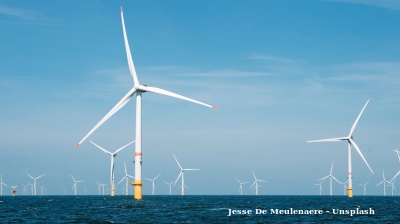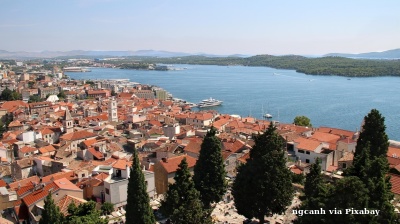The Municipality of Centar in Skopje, the capital of North Macedonia, has declared an environmental emergency and rolled out a package of urgent measures to combat the growing piles of rubbish and the appearance of rodents that have overwhelmed the city in recent days, mayor of Centar announced on October 23.
The crisis, described by Mayor Goran Gerasimovski as “extremely alarming”, stems from a breakdown in operations at the state-owned enterprise Komunalna Higiena, whose ageing and insufficient fleet of garbage trucks failed to collect waste for days — just as Skopje was in the midst of its local election campaign.
“The entire city is covered in waste. This is no longer just a hygiene issue but a health and epidemiological problem,” Gerasimovski said. “I appeal to all citizens and companies to cooperate and follow the measures so that we can overcome the situation created by Komunalna Higiena.”
The mayor, who is currently leading in the first round of local elections with 38.19% of the votes and will face ZNAM coalition candidate Miroslav Labudovic in the runoff, said the municipality has mobilised all available resources.
“We are reducing all other activities to a minimum and redirecting employees to implement these measures. This is a moment when every public servant must show responsibility,” he stated.
As part of the emergency plan, Centar municipality has begun distributing large, durable rubbish bags free of charge to households, while all residences are being ordered to conduct mandatory extermination of rodents, particularly in basements, where rats have been breeding rapidly.
“We are carrying out emergency extermination and disinfection across schools, kindergartens, parks and public buildings,” Gerasimovski announced on social networks.
Smaller containers for daily waste and larger bins for bulky waste are being placed in densely populated neighbourhoods and strategic locations, with the aim of making collection easier once vehicles are back in operation.
The municipality has also called on restaurants, cafes and bars in Centar to dispose of waste responsibly, avoiding over-full bins and using double or triple-layered bags for better protection. The public enterprise that manages parking in central Skopje, POC, will establish special points and a collection schedule for catering waste, and an urgent meeting with restaurant owners is planned to coordinate efforts.
In addition, the municipality’s inspection teams will be patrolling constantly to crack down on illegal dumping from construction sites, shops and companies. “Fines will be rigorous for any reckless behaviour,” Gerasimovski warned.
As garbage piles up in streets, alleys and courtyards, residents’ frustration has been rising. Many have taken to social media to share photos and videos of overflowing bins.
“In Skopje, there is a lot of garbage; I don’t know how it got to this point. It really bothers me, as if no one cares about the city,” said one elderly resident to bne IntelliNews earlier this month.
Locals say the problem worsened during the election period when political campaigning took precedence over municipal maintenance. Now, the consequences are visible across the capital: an unpleasant smell hanging in the air, heaps of uncollected waste in front of residential blocks, and growing concern over public health. North Macedonia held the first round of local elections on October 19.
“For the past five days, there has not been a single truck from the municipal company on the territory of Centar. We have rented additional machinery, and our sanitation workers are working in two shifts to clean the streets. Unfortunately, even that is not enough,” Gerasimovski admitted in comments to the media.
The garbage crisis has quickly become a test for both Skopje’s institutions and its political leaders. Environmental experts warn that the lack of coordinated waste management could lead to outbreaks of disease if not addressed immediately.
Gerasimovski has called on private companies to show solidarity and provide trucks, machinery and logistical support to speed up the clean-up. “This is a moment when we all must demonstrate social responsibility,” he said.
bneGREEN

Malaysia–Vietnam offshore wind project to deliver 2,000 MW by 2034, strengthening regional green energy links
Malaysia’s upcoming offshore wind project connecting Vietnam to Peninsular Malaysia is expected to generate up to 2,000 megawatts (MW) of clean energy by 2034, marking a major step in the nation’s renewable energy expansion

EBRD invests €16.8mn in Croatia’s first large-scale battery storage and virtual power plant
Development bank to take its first equity stake in a standalone merchant storage project.

Kyrgyzstan says neighbours “upset” by country’s lack of water
“This year we were supposed to overcome shortages, but instead, they have intensified,” deputy head of cabinet tells Uzbekistan and Kazakhstan.

EXPLAINER: What is the EU’s CBAM and how will it affect global trade from 2026?
The European Union’s Carbon Border Adjustment Mechanism (CBAM) will enter its full operational phase on January 1, 2026, marking a major shift in global climate and trade policy.




